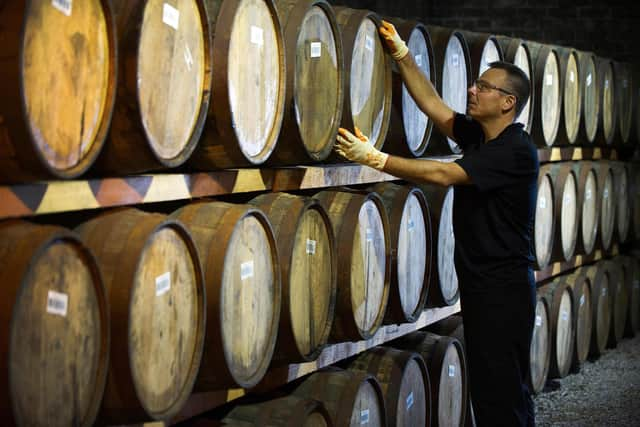Scots whisky hit with 'historic hammer blow' in Budget - Mark Kent


This iconic product has been an economic anchor for growth, supporting tens of thousands of jobs – from rural Scotland through our UK supply chain and into the hospitality and tourism sectors.
It generates over £5.5bn each year for the UK economy. It attracts investment and has driven growth during tough times.
Advertisement
Hide AdAdvertisement
Hide AdAll of this has gone unrecognised by the Chancellor in a £70m tax grab.


The double-digit tax rise breaks the pledge made by the UK government to “ensure the tax system is supporting Scottish whisky” and comes at a time when the industry is facing significant domestic headwinds, including the soaring cost of energy, intense pressure on the hospitality sector, and increasing regulatory burdens like the Deposit Return Scheme.
Worse still, the Budget has increased the tax discrimination experienced by distillers by widening the gap between beer and cider taxation in the on-trade through so-called “draught relief”.
This tax break is not available to 99 per cent of the spirits sector, with small producers focusing on creating premium products, enjoyed by millions, in 70cl bottles from behind bars across the country.
Consumers of quality spirits like Scotch Whisky will now be forced to pay even more per unit of alcohol than consumers of beer and cider.
This was a fundamental flaw in the duty reforms published by HM Treasury, due to be implemented in August, which the industry has repeatedly pointed out, but to no avail.
The decision by the Chancellor compounds the problem, and ensures the new system will be a broken system, disadvantaging the Scotch whisky industry, from the outset.
Since the UK government pledge to support Scotch in the tax system, the gap between spirits and other alcohol categories, far from narrowing, has widened.
Advertisement
Hide AdAdvertisement
Hide AdThe tax burden on Scotch Whisky, already 70 per cent on the average priced bottle of Scotch, has increased to 75 per cent.
The move to increase duty on alcohol is also inflationary, making it more difficult for the Chancellor to live up to another pledge – to halve inflation this year.
Although many forecasts already predict this will happen, hitting business and consumers with more tax flies in the face of the UK government’s insistence that driving down inflation is one of its top priorities.
The Budget is a hammer blow, an historic blow in many ways, to the industry – and breaks the commitment made to the industry, which distillers across Scotland take seriously, damaging one of Scotland’s most important sectors.
At a time of rising costs and rampant inflation, the Chancellor has made the choice to hit hard-pressed businesses and consumers facing rising prices instead of backing our businesses, backing growth and supporting Scotch.
Mark Kent is Chief Executive of the Scotch Whisky Association
Comments
Want to join the conversation? Please or to comment on this article.